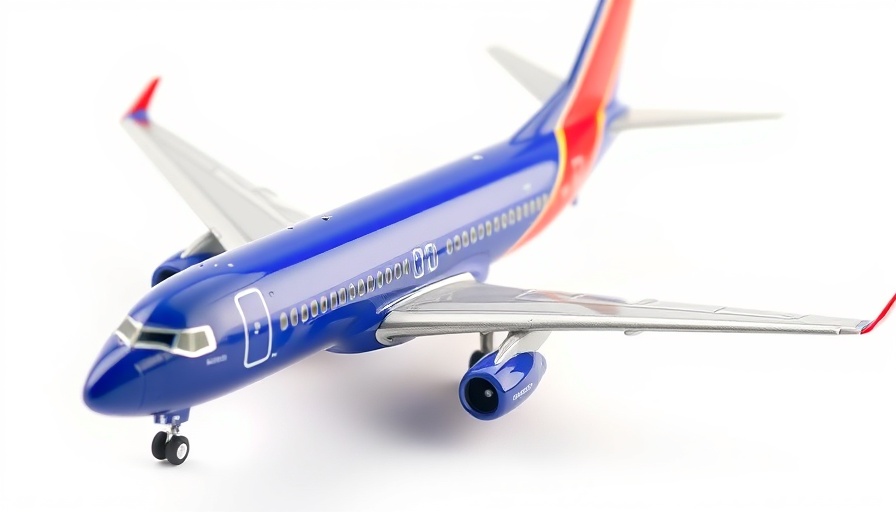
Southwest Airlines Transforms into a Commodity Airline: What Does It Mean for Passengers?
The recent announcements from Southwest Airlines have sent shock waves through the travel industry, as the low-cost pioneer for decades has traded its tried-and-true customer-friendly approach for a more baseline commodity model. Historically celebrated for perks like free checked bags, open seating, and generous legroom, Southwest has now introduced a Basic Economy ticket tier and significant changes to its offerings – essentially shedding the value proposition that long distinguished it from other carriers.
Understanding the Shift to Basic Economy
Southwest’s introduction of a Basic Economy class signals a strategic pivot toward an austere model aimed at reducing up-front costs for the airline, driven by undeniable market pressures. This fare structure, which many major airlines have adopted, comes with restrictions that many frequent flyers will find frustrating. Notably, these fares do not allow free changes nor do they earn passengers the valuable rewards points they once did. While passengers could previously secure favorable seat arrangements and two free checked bags, these have been relegated to higher fare tiers, resembling the competitive landscape that Southwest once sought to avoid.
The Influential Role of Investor Pressure
According to industry insiders, the changes at Southwest follow considerable pressure from activist investors such as Elliott Investment Management, which now holds five board seats and has urged quick adaptations to improve financial performance. The airline’s recent woes cannot be overstated; it has struggled to maintain its market share in the face of shrinking margins and rising operational costs. As reported, the pursuit of the almighty dollar has led to Southwest undermining its core differentiators in the hopes of boosting revenue through ancillary fees.
Implications of Charging for Checked Bags
The announcement that Southwest will begin charging passengers for checked baggage marks a definitive end to an era where two bags flew free – a hallmark of the airline’s service for over 50 years. This move aligns Southwest with its competitors, who collectively raked in $5.5 billion from baggage fees last year. The decision, however, poses a dilemma; will it alienate long-time loyal customers? With the COO stating that revenue demands necessitate these changes, it raises serious questions about the airline’s future connection with its consumer base.
Impact on Customer Experience
The new policies will also significantly alter how passengers experience travel with Southwest. Gone are the days of open seating and informal boarding; in its place, a more structured and, arguably, restrictive system emerges. Travelers will have to pay extra just to select their seats, with potential risks of poor seating arrangements if they decide against paying additional fees. Moreover, modifications in legroom and added “premium” seating options spell a pronounced downsizing in comfort which had been a staple of the Southwest travel experience.
Rapid Rewards Program Overhaul
Southwest's changes to its Rapid Rewards program further highlight the airline's shift in priorities. Points earned on flights will now be contingent upon ticket prices, with redemption rates increasingly disconnected from cash fares. This transitional adjustment can confuse loyal customers who have come to rely on a predictable reward structure. Individual perceptions of value from flying Southwest may reach an all-time low, resulting in lost travelers heading toward more appealing, competitive airlines.
The Downward Spiral of Airline Competition
This pattern of stripping back customer benefits to look more like a commodity airline poses challenges not just for Southwest but for the entire airline industry. As competition heightens, carriers offering superior customer service and value may thrive, while those adopting dime-a-dozen strategies may find themselves struggling for survival. Whether or not Southwest can regain its identity in the face of these pressures remains to be seen.
Time for Action: What Travelers Should Do
For discerning travelers and frequent flyers who value their loyalty and comfort, the evolving Southwest landscape necessitates a reassessment of travel strategies. Examine each airline’s offerings holistically rather than simply comparing fare prices. As charges and fees accumulate, consumers must play the role of educated spenders, making informed decisions that best align with their travel preferences and budget requirements.
In conclusion, while Southwest Airlines once seemed synonymous with value and customer focus, the recent shifts signal a new reality where they must compete on the battleground of fees and restrictions. Only time will tell if this pivot aids their financial recovery or alienates their key demographic.
 Add Row
Add Row  Add
Add 



 Add Row
Add Row  Add
Add 
Write A Comment